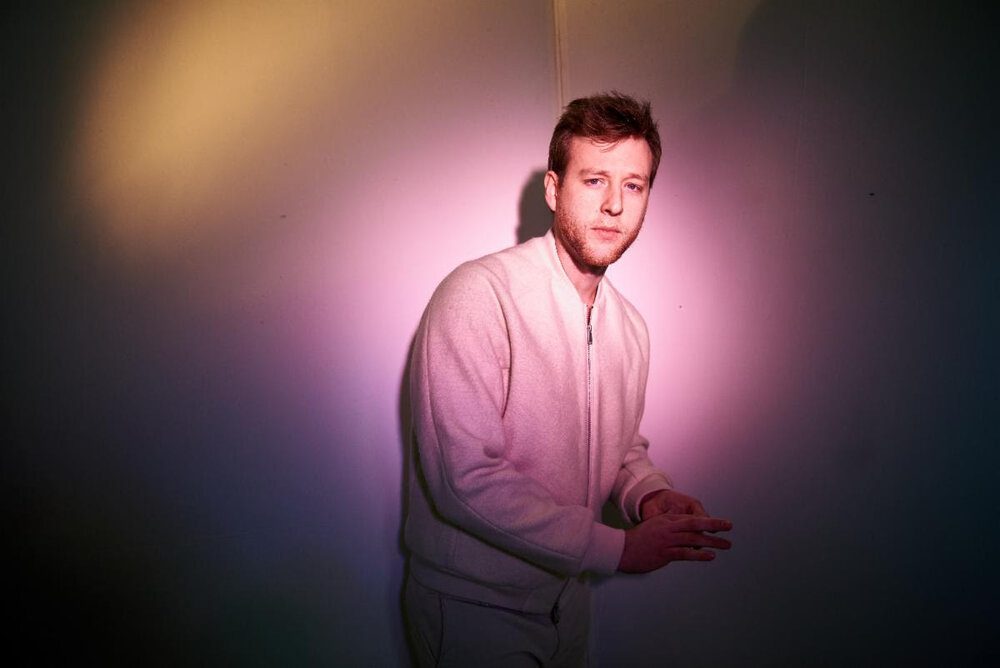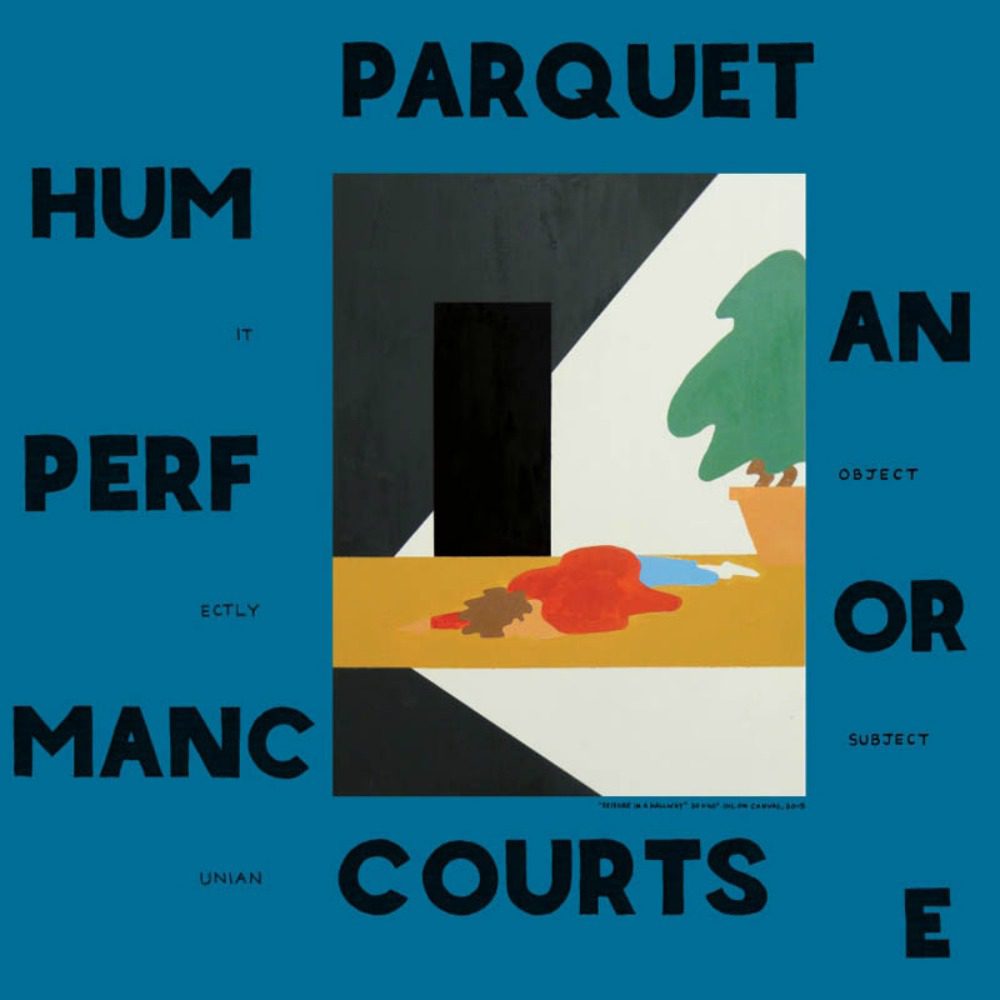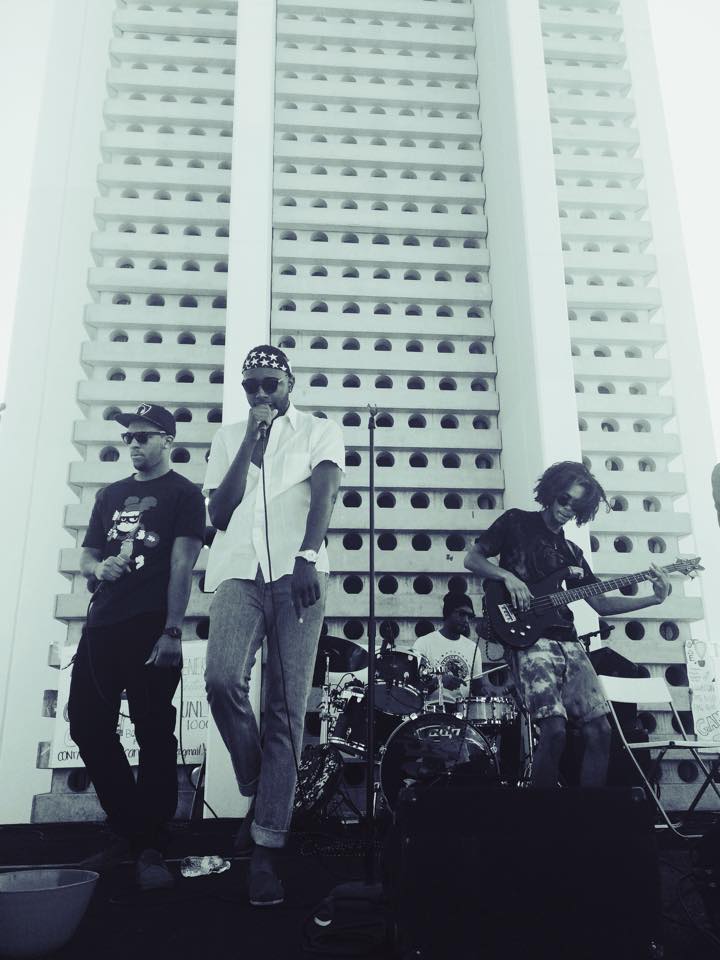

You have to let Charles Fauna’s Yonder wash over you. It’s the kind of record that soothes an anxiety-ridden mind. His lush, effervescent soundscape ─ extracted from such influences as Kid Cudi, St. Vincent, David Bowie, and Joe Goddard ─ numbs you into a meditative state, and you begin a deep probing of your mental facilities to make sense of it all.
Yonder is a monumental debut, expansive yet immersive, brimming with hope and brightness, and it could not have arrived at a more appropriate time. During the massive COVID-19 pandemic, the 12-track collection deals out far more poignancy than even he could have expected. “I do feel as though one of the unintended consequences of the quarantine is a lot of time for self-reflection and reckonings with our internal selves,” Fauna tells Audiofemme. “I feel as though it’s the kind of album that wants to help people, so it would be weird to put it out during a gorgeous and peaceful summer, you know?”
Based in Brooklyn, the indie-pop mastermind juggles his desire to celebrate such an impressive bow and a new creativity already coursing through his body. “The moment I finish a body of work, I usually spend a few weeks head-over-heels in love with it and then am on to something else,” he confides. “With albums, you usually finish them, and it takes half a year or more to actually put them out. I look at this album very fondly and am so proud of it, like a parent watching their kid do a school play for the first time.” Yonder sets a high bar, but Fauna eyes even more soaring artistic heights. “Whatever comes next will exceed it in every way,” he says.
Part of Yonder’s triumph came from the pressure Fauna felt to make his debut LP memorable. He didn’t want to simply slap together 10 or 12 songs and call it an album. It needed to mean something in the world. “I wasn’t just writing for the sake of writing. I really wanted to create something profound and epic ─ the kind of album that might live longer than I would.”
“More than anything, I just didn’t want to do what was expected of me. It was important to me that this, at least in an abstract sense, feel like a real journey,” he adds.
“Over Yonder,” a wondrous spoken word introduction, sets the scene like a Greek tragedy. Initially written as a poem, almost as an “entity remarking on someone’s mental state,” he says, he soon realized the album needed to be framed through another’s perspective. “I decided then that I didn’t want these songs to be explicitly from my point of view, but rather to imagine the music through the eyes of someone else. A character,” he explains. “Apollo” follows, pummeling the eardrums as a rocket ship cruising through the Milky Way. It was within such a synth-y cosmic web that the story unfolded. Centered around the idea of “people in the future going to live on Mars because we had exhausted the Earth of resources,” the groovy little number cemented the album’s inevitable story arc in his brain.
“I thought to myself, ‘What if the character in the poem was one of these people who was forced to leave Earth and go to Mars? What would that actually feel like?’” Fauna then began piecing together his arsenal of songs and beats into a more focused, streamlined vision, and these common themes emerged: outer space, leaving home, and reckoning with the void. “I’ve always been a bit of a space cadet and am constantly writing and imagining stories in my head,” he says. Fauna shuffles through his own mental anguish and projects his findings through the eyes of a 16-year-old girl. The unnamed protagonist mounts an expedition away from the only world she’s known for a “journey of self-discovery,” he says.
Taking the notion of being a “hopeless millennial yearning for something profound” – an ache most of us feel these days – and reapplying it on a far grander scale, Yonder filters Fauna’s personal turmoils and anxieties over political, socio-economical, and environmental issues through a universal lens to tap into today’s swelling fears. “More than anything I learned how many people feel like I do,” he offers. “I realized that my feelings of existential malaise were in no way unique to me ─ that there are so many young people who feel deeply stifled by their lack of faith in humanity.”
From breaking soil on “Mars” to the celestial beauty of “The Divine” and the addicting, syrupy throb of “A Total Dream,” Yonder blossoms into a record “about exploring this lack of faith and trying to understand where to place one’s belief. Ultimately what I came to learn, and what I hope the record expresses above all, is that we place that faith in ourselves. And each other.”
Fauna also expresses spirituality in a freeing, unapologetically accepting way ─ a threshold which proved to be indescribably healing. “When I finished [the album], I felt in many ways that I had said all I wanted to say. It felt complete. That in and of itself was healing for me. I spend a lot of time trying to maintain social equilibrium,” he explains, “I’ve often kept my deeper, more spiritual opinions to myself out of fear of being judged. Expressing these ideas was very cathartic. It also heals me when someone who has heard the music reaches out to let me know that it meant something to them, or that they got something out of it. Even one person having heard me out makes it worth it.”
Yonder is a collective, hyper-realized journey. It’s not just Fauna’s or mine or my neighbor’s. It’s everyone’s, and we’re all in this together. “I want the listener to realize they are not alone. The philosophy behind [this album is] that we can always be better, that we can always improve, be kinder, be more open, more intelligent, more empathetic towards each other. And for them to find peace in searching for something entirely without the self.”
For much of his life, Fauna has been bound and tormented by his anxiety and, perhaps, “blind to some greater truth just beyond my sight,” he says. “I felt so trapped by the monotony of the everyday. More often than not, my head was tilted downward ─ obsessed with my internal world rather than the boundless external one. Where most of my music up to now reflects this, [this record] is my deliberate attempt to look up: to see more, to be open to anything, and to connect with others.”
Hunger for human connectivity glues the record together, and such craving has never been felt more right than now. “I can’t speak for everyone, but I can say that for me personally this has been an intense reminder as to the value and importance of my friendships. The next time I am able to meet my friends at a bar, to see them in person, hug them, celebrate being alive, I think I will probably cry,” he says of the ongoing global crisis. “There will be such overwhelming beauty in doing the simplest of things, in reclaiming normalcy. I will have gained a deep appreciation for things that a month or so ago I would have not thought twice about. I should hope that it expands the quality of our connections with others.”
Below, Fauna gives us a track-by-track Yonder breakdown, its many themes, and the journey of our protagonist.
“Over Yonder (Intro)”: The intro, interlude and outro of Yonder are where the bulk of its narrative is told (though in vague terms). The intro establishes our protagonist – a young person desperately seeking something more, in dire need of a change, feeling stuck and stagnant, seeking WONDER. She imagines a world where she could be the person she wishes to be.
“Apollo”: Real life circumstances grant the protagonist her wish as she and her family are among the first to leave planet earth as it nears the point of being inhospitable. “Apollo” is an unabashed leap into the unknown, knowing full well that some bones may be broken in the fall. It’s fraught with uncertainty and anger, a bitterness towards the people who have ruined this earth for our protagonists’ new generation, yet there is still hope within.
“Listen”: This song probably has the least to do with the overall narrative and is more just a moment of true vulnerability after an immense risk. More than anything “Listen” is meant to conjure feelings of empathy, toward any and everyone. I imagined that this song transpires during the journey from Earth to this colony on Mars where humans are relocating.
“Mars”: Here the protagonist and her family arrive on planet Mars where a high-tech colony, Project Yonder, has been established as a new capital of human civilization. Having narrowly escaped the fate of their home planet, people drink, sing, and revel in their successful brush with death. This disturbs our protagonist, who feels there is no cause for celebration and that we are responsible for a terrible catastrophe. The euphoric yet dark house vibe on the track is meant to play against that feeling of catharsis while also speaking to the layer of skepticism our protagonist feels underneath.
“Kerosene”: Here is the major turning point for the protagonist. Feeling lost, angry and disconnected from her fellow humans, the protagonist decides that this new Martian colony is not home for her. That even beside her loved ones, she cannot be content, she cannot be happy, and she cannot sit by while humanity repeats its same damning behaviors. Stealing her own small ship, she departs in secret completely by herself to an unknown destination in the cosmos. As she floats in space, the lyrics of “Kerosene” reinforce her mission, that no matter what she will survive. That no matter what she will prove to herself that there is more out there than what she has come to know. That Yonder couldn’t have been all there is.
“The Divine”: Another song that is more of an emotional moment than a narrative one. I imagine here that the protagonist has been floating in space for a few weeks, is probably low on food and questioning her decision to leave her family behind. She reaches out spiritually for some understanding, some sign from some god that things will be okay. That her search isn’t in vain. Musically and lyrically, this song is the speaker (and by extension me) on their knees, completely open and vulnerable to forces greater than themselves.
“One Foot First (Interlude)”: As if to answer her prayers, the voice in the interlude responds. Though, much like a Greek chorus, his words are meant more for the listener than the characters. The voice offers encouragement, imploring patience in times of tremendous change.
“A Total Dream”: Side two starts with a bang as our protagonist’s ship makes sudden contact with an alien world. She lands to discover a surreal, hyper colorful landscape: a place where dreams seem as real as any truth she has ever known. Pink skies, lush grass fields of lavender and orange, bioluminescent wildlife, a neon Eden. Full of elation and possibility, she sprints through this new world with reckless abandon, seemingly in harmony with her surroundings for the first time in months. Youthful, euphoric, indie rock.
“Wayfarer (Instrumental)”: As she continues to explore this new world, our protagonist finds herself in a forest – trees above obscuring the neon sky and glowing fauna on the ground drawing her into this mesmerizing wood. I used sounds here to imagine the chirps and squeaks of alien life. As she walks in silence, she begins to have visions of her loved ones. A concerned mother, a scared little brother, a young man (perhaps a boyfriend) staring at her picture on his desk. They are visions of her absence in others’ lives, and they begin to make her feel profoundly empty. What was once a place of pure freedom slowly becomes something darker, sadder and lonelier. Here she begins to realize: the farther out she goes, the farther away she gets from what makes her HER. Confused, she returns to her ship with the intent to send a message back home.
“Always You”: This song is lyrically written as a letter (or transmission) from the protagonist back to her worried parents on Yonder. She explains why she felt she had to leave, why their new life on Yonder was not enough for her. Why, even at the cost of her own sanity, she feels she had to do this. The more she writes the more she unravels, until by the song’s end, she realizes the desperation of her situation – alone and without food in an alien world. The song ends as she finally yields, and wishes she was home, whatever that means, and fades into a deep sleep. The song is dark, brooding and intensely intimate.
“Church”: Lights from above tell her that she is saved. Her transmission back to Mars was successful and her parents and brother have come to bring her home. Lyrically, this song is an examination of self-hatred, and how sometimes we push the people we love away when in reality we need them most. As the song builds, a thousand voices of doubt and loathing creep into the listeners ear, only to be dispelled by a violent STOP from the protagonist. “Church” is the euphoria of certainty: finally knowing what it is you have to do and what exactly has been hindering you for so long.
“Over Yonder (Outro)”: Having seen this alien world, the protagonist realizes that as much as she detests other human beings, her place is with them. That she is one of them. As the narrator says, her purpose is to “levitate, but not to fly free.” She finally sees that what she has been missing this whole time – the emptiness, the lack of connection, is not something that she sought from God, or nature but from PEOPLE. She had been alone. And so sought love and acceptance elsewhere. Anywhere. As she returns to Yonder with her family, she sees it in a new light. A young man waits for her on the landing dock as the ship lands on Mars. She looks down on him with a tearful smile, realizing she was never alone at all.




